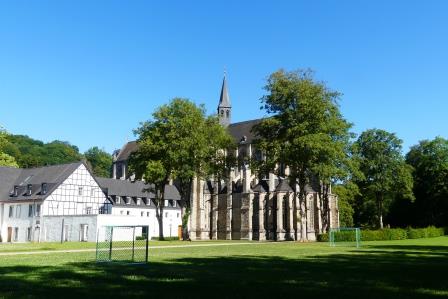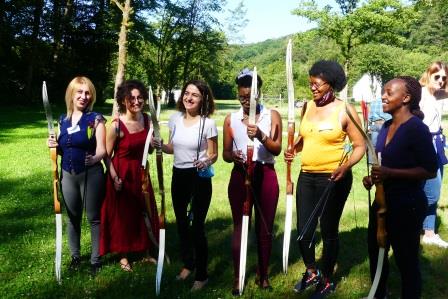After the welcoming part and introduction, the seminar’s content-related part began with a workshop in which the participants shared their expectations and experiences of their doctoral studies in Germany in different group constellations and on the basis of guiding questions. It turned out that the offer to exchange experiences corresponded to a concrete need to discuss with other doctoral students about this time and the difficulties that might be associated with it. In this way, the experiences could be contextualised and compared with each other. It was found that many of the experiences, hurdles and difficulties were similar and the doctoral studies were taking more time and progressing more slowly than expected. What is more, some practice-oriented questions as well as questions about the history and scientific theoretical premises of German doctoral studies were asked.
To answer those questions, Prof Dr Stefan Fisch, Chair of Modern and Contemporary History of the German University of Administrative Sciences Speyer, came to Altenberg. His keynote speech on the history of the doctoral system in Germany allowed an insight into the multifaceted layers of the development of the German understanding of science, from the university of the four traditional faculties as an European institution, through the re-conceptualisation of the university as a “research university” through Humboldt’s understanding of education, to today’s conditions of the doctoral system which are based on precisely those developments.
On the next day, Prof Dr Andreas Speer, Professor for Philosophy, Head of the Thomas Institute of the University of Cologne and Head of the a.r.t.e.s. Graduate School for the Humanities Cologne, gave a lecture on the structures of doctoral studies and thus, took up the underlying system of it. These structures compensate for the structural disadvantages of the previous model of a master and its student and have already proven to be partially established and successful: Whereas PhD students previously only had their doctoral supervisor as point of reference, the students of the new system are now ideally embedded in a larger context of reference points. Furthermore, the PhD candidate is now no longer seen as a mere student but as a young scientific researcher and the path during and after the PhD is now more differentiated and with a stronger multidimensional focus than before. Providing all sorts of answers to the practical questions of the seminar’s participants, this digital lecture rounded off the content-related programme of the seminar.
During the lecture sessions, two methodical units introducing the participants on stress management were offered by those responsible for the educational programme of the seminar house Altenberg: one in the form of guided self-reflection and one in the form of meditative archery. The spiritual programme finally brought together the various aspects and parts of this seminar and allowed the participants to redirect their attention to the spiritual foundation. Besides the spiritual impulse in the evenings and in the mornings and the joint mass in the Christkönig Chapel, a guided tour through the famous Cathedral of Altenberg was also part of the programme. This sacred building with its rich history, used as a double church, has inspired a new understanding of co-existence and brotherliness, which some of the participants will take back to their home countries. The days at house Altenberg ended with a colourful and cheerful evening in front of a campfire.
Therefore, it can be said that this gathering together after a time of social deprivation was of special importance for all participants and provided enriching insights and experiences on many different levels.






